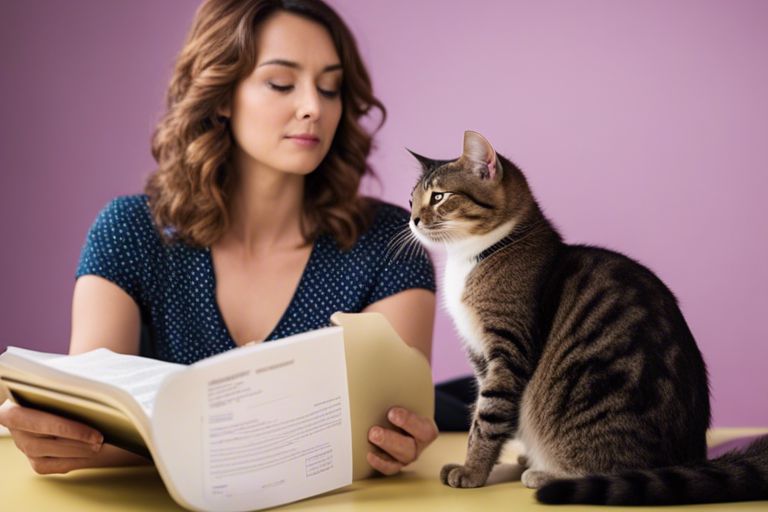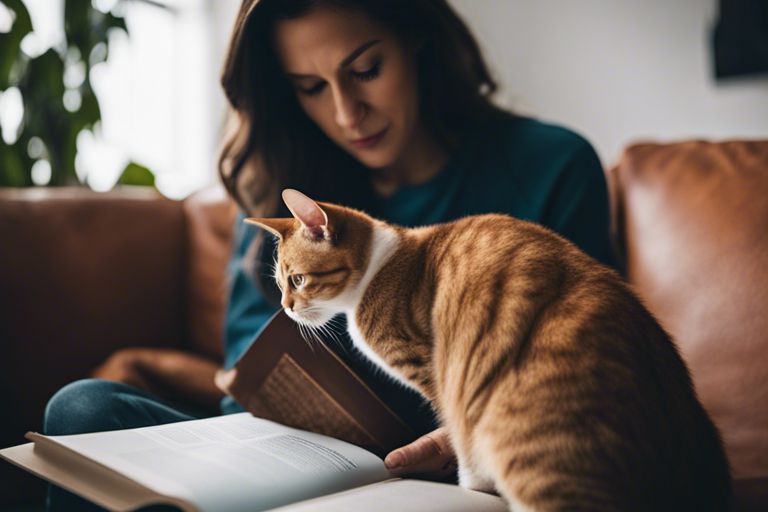Have you noticed your feline friend’s belly looking a bit more round and bloated than usual? It’s important to pay attention to this because a bloated belly in cats can be a sign of a serious health issue. While it may be something as simple as overeating, it could also indicate a more serious problem such as fluid accumulation, tumors, or intestinal blockages. If you notice your cat’s belly appearing bloated, it’s crucial to seek veterinary attention as soon as possible to determine the underlying cause and provide the necessary treatment. In this blog post, we will explore some of the common reasons why your cat may have a bloated belly and what you can do about it.
Key Takeaways:
- Obesity: A common reason for a bloated belly in cats is obesity, which can lead to other health issues if not addressed.
- Fluid buildup: Fluid buildup, also known as ascites, can cause a distended belly and may be a sign of underlying health problems such as heart disease or liver issues.
- Parasites: Intestinal parasites such as roundworms or tapeworms can cause a bloated appearance in a cat’s belly, often accompanied by other symptoms such as diarrhea or vomiting.
- Gastrointestinal issues: Conditions such as inflammatory bowel disease or gastrointestinal cancer can also result in a bloated belly, requiring veterinary attention for proper diagnosis and treatment.
- Pregnancy: If a female cat is not spayed and has access to male cats, she may become pregnant, leading to a visibly swollen belly in the later stages of gestation.
Common Causes of Feline Abdominal Distension
One of the most common reasons for your cat to have a bloated belly is due to digestive issues. This can include conditions such as gastrointestinal blockages, inflammatory bowel disease, or food intolerances. If your cat is experiencing digestive issues, it can lead to the buildup of gas and fluid in their abdomen, causing their belly to appear bloated.
Digestive Issues
If your cat has a bloated belly due to digestive issues, you may notice other symptoms such as vomiting, diarrhea, loss of appetite, and lethargy. It’s important to have your cat examined by a veterinarian as soon as possible to determine the underlying cause and to provide appropriate treatment. Untreated digestive issues can lead to serious complications and discomfort for your cat.
Parasitic Infections
Another common cause of abdominal distension in cats is parasitic infections, such as roundworms or tapeworms. These parasites can cause your cat’s belly to become bloated as they grow and multiply in the gastrointestinal tract. You may also notice other symptoms such as weight loss, a dull coat, and an increase in appetite despite poor body condition.
If you suspect that your cat may have a parasitic infection, it’s essential to take them to the vet for a fecal examination and appropriate deworming treatment. Parasitic infections can have serious health consequences for your cat if left untreated, and some parasites can also be transmitted to humans.

Medical Conditions Leading to a Bloated Belly
To understand why your cat may have a bloated belly, it’s essential to consider various medical conditions that could be causing this symptom.
Organ Diseases
If your cat has a bloated belly, it could be a sign of organ diseases such as liver or kidney disease. Both of these conditions can cause fluid buildup in your cat’s abdominal cavity, leading to a distended belly. This is a particularly serious development, as both liver and kidney disease can have severe implications for your cat’s overall health. If you notice your cat’s belly is getting bigger and they are displaying other symptoms such as lack of appetite, vomiting, or lethargy, it’s crucial to seek veterinary care immediately. Early detection and treatment can significantly improve your cat’s prognosis.
Other Serious Ailments
In addition to organ diseases, a bloated belly in your cat could also be a symptom of other serious ailments such as feline infectious peritonitis (FIP) or cancer. FIP is a viral disease that can cause fluid buildup in the abdomen, leading to a distended belly. Similarly, certain types of cancer, such as lymphoma, can also manifest as a bloated abdomen in cats. These conditions require prompt diagnosis and treatment by a veterinarian. If you notice your cat’s belly is bloated and they are showing other concerning symptoms, don’t delay seeking professional help. Early intervention can make a significant difference in your cat’s outcome.
Diagnosing the Cause of Bloating
Unlike humans, cats cannot tell you what is wrong, so diagnosing the cause of their bloated belly requires a careful examination. To determine the underlying issue, it is essential to seek professional veterinary help. You can refer to this guide on How to Diagnose the Cause of a Swollen Abdomen in Cats for a more detailed understanding.
Veterinary Examination
When you notice your cat’s belly is bloated, it is important to take them to a veterinarian for a thorough examination. The vet will conduct a physical examination and may also require blood tests, x-rays, or ultrasounds to determine the cause of the bloating. These diagnostic procedures will help in identifying any underlying health issues that may be causing your cat’s bloated belly.
Home Observation Tips
If you notice signs of discomfort or pain in your cat, such as restlessness, vocalization, or reluctance to eat, it is important to seek veterinary assistance immediately. Additionally, you can monitor your cat’s litter box habits and look for any changes in their stool or urine. Any changes in appetite or water intake should be noted as well. The color and consistency of your cat’s stool can also provide valuable information about their digestive health. The presence of vomiting or diarrhea should also be carefully observed. The sooner you notice any abnormal behaviors or symptoms, the sooner you can seek help for your cat. The well-being of your cat is of utmost importance, so it’s crucial to stay vigilant and observant.
Treatment and Management
Keep in mind that treating a bloated belly in cats depends on the underlying cause. In some cases, changes in diet and lifestyle can alleviate the symptoms, while in other cases, medical interventions may be necessary.
Addressing Dietary Concerns
When it comes to dietary concerns, it’s important to evaluate your cat’s current food and make necessary adjustments. Switching to a high-quality, easily digestible cat food may help reduce bloating and improve your cat’s overall health. Additionally, avoid overfeeding and limiting treats can also prevent bloating. Be sure to consult with your veterinarian to determine the best diet for your cat’s specific needs.
Medical Interventions
If dietary changes do not resolve the issue, medical interventions may be necessary. Your veterinarian may recommend x-rays, ultrasounds, or blood tests to identify the underlying cause of your cat’s bloated belly. Depending on the diagnosis, treatment options may include medications, surgery, or other specialized procedures to address the issue. It’s crucial to follow your veterinarian’s recommendations and regularly monitor your cat’s condition to ensure they receive the necessary medical care.
Prevention and Long-Term Care
Now that you understand the potential causes and symptoms of your cat’s bloated belly, it’s important to take preventative measures to keep them healthy in the long run. Regular veterinary check-ups and a few simple changes in your cat’s daily routine can go a long way in preventing serious health issues.
Preventative Measures
One of the most important things you can do to prevent your cat from developing a bloated belly is to feed them a well-balanced diet. Ensure that you are providing high-quality cat food that meets all of your cat’s nutritional needs. Additionally, make sure to carefully monitor your cat’s food intake to prevent overeating. Lastly, make sure to keep an eye on any changes in your cat’s behavior or routine, as these could be indicators of a potential health issue that needs to be addressed.
Routine Veterinary Check-Ups
Scheduling regular check-ups with your vet is essential for maintaining your cat’s overall health and catching any potential issues early on. Your vet can provide you with invaluable guidance on proper nutrition, weight management, and any changes in your cat’s behavior or physical appearance that could indicate a health problem. They can also conduct routine tests and screenings to ensure that your cat is in good health. Remember, early detection and intervention can make a significant difference in your cat’s long-term well-being.
Why does my cat have a bloated belly?
From above information, you may now understand that there are several reasons why your cat might have a bloated belly. It could be due to overeating, intestinal blockage, gas, or even a more serious health issue such as tumors or organ enlargement. It is important to monitor your cat’s symptoms closely and consult with a veterinarian if you notice any abnormalities. It is always better to be safe than sorry when it comes to your pet’s health. Your veterinarian can conduct a thorough examination and determine the cause of your cat’s bloated belly, and provide the appropriate treatment to ensure your cat’s well-being.
FAQ
Q: Why does my cat have a bloated belly?
A: There are several reasons your cat may have a bloated belly. It could be due to overeating, obesity, constipation, or a gassy stomach. However, it could also be a sign of a more serious issue such as fluid buildup, tumors, or parasitic infections. It’s important to consult with a veterinarian to determine the cause.
Q: What are the symptoms of a bloated belly in cats?
A: The symptoms of a bloated belly in cats may include a visibly swollen abdomen, difficulty breathing, lethargy, loss of appetite, vomiting, diarrhea, and discomfort when touched. If you notice these symptoms in your cat, it’s crucial to seek veterinary attention promptly.
Q: How can I prevent my cat from getting a bloated belly?
A: To prevent your cat from getting a bloated belly, it’s essential to provide a balanced diet and monitor their food intake to prevent overeating and obesity. Regular exercise and play can also help maintain a healthy weight and prevent constipation. Additionally, regular veterinary check-ups and deworming can help prevent parasitic infections that can cause bloating. Always consult with a vet for personalized advice based on your cat’s specific needs.

Jayley, a devoted cat enthusiast, also writer for other cat blog as well. She aims to dedicated to providing comprehensive information, insights, and advice on everything you’d ever want to know about our whiskered companions.
